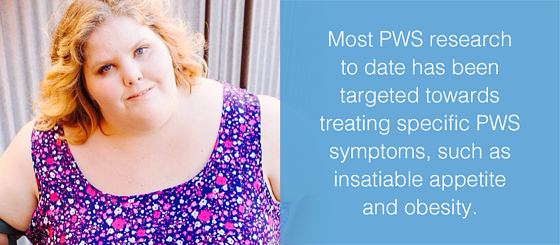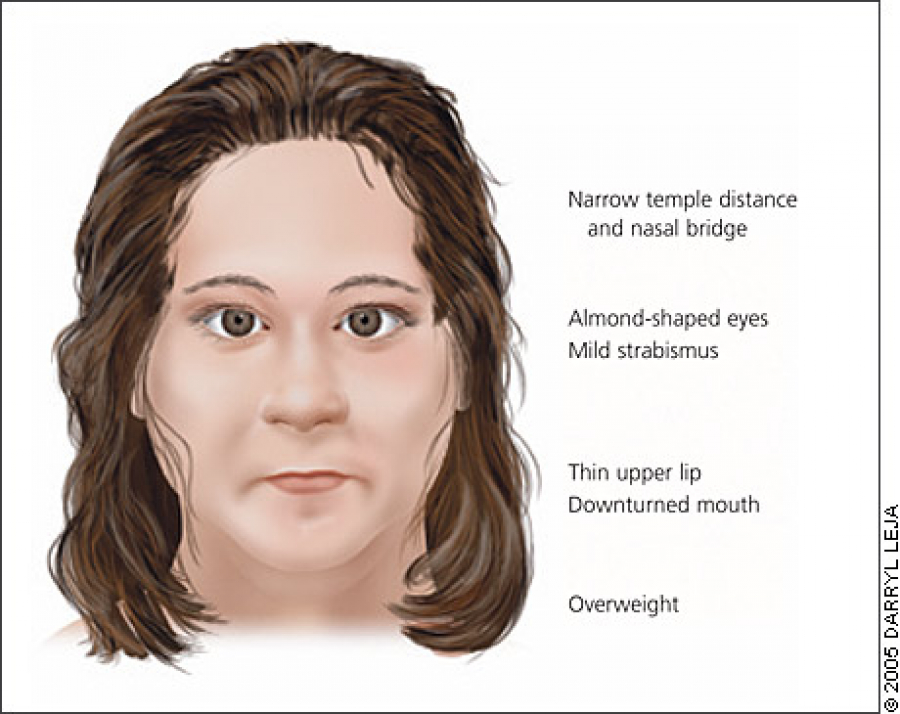
Prader Willi Syndrome (PWS; known as Prader-Weiler syndrome type I) is a very rare hereditary disorder which results in several physical, emotional and behavioral abnormalities. The most common symptoms are persistent bouts of appetite disturbance, obesity and loss of appetite, increased hyperactivity, lack of sleep, frequent licking of the lips, mouth sores and a decreased interest in activities. This condition is inherited in both parents but can also be passed down from one sibling to another.
Prader Willi Syndrome type I (PWS me; also referred to as Prader Willi Syndrome type II) is characterized by a genetic abnormality in the gene responsible for controlling the production of serotonin in the brain.
It is caused by a mutation within the serotonin transporter gene, which is found on chromosome number Xq
The symptoms of PWS I are similar to those of other types of obsessive compulsive disorder (OCD), such as Agoraphobia, Bulimia and Compulsive Skin Picking Disorder (CSSP). The major difference is in the pattern of development. In PWS I the onset of symptoms occurs between the ages of two and five years. The disease is diagnosed on the basis of clinical signs and symptoms of altered or absent eating patterns, increased consumption of fatty, sugary, salty and/or spicy food, and excessive masturbation and/or sexual activity. A key characteristic of Prader Willi Syndrome type I is an intense sense of cravings for food and a strong desire to eat large amounts of food.
Food cravings and overeating have been shown to be closely associated with symptoms of OCD, in particular those associated with compulsions to avoid certain types of food or to visualize certain behaviors in response to eating a specific type of food. When a person with Prader Willi Syndrome eats too much or too frequently, they may be less able to control their urges to consume food, in particular when they are surrounded by foods they enjoy. It has been estimated that up to 60% of cases of this disease involve a loss of control over the urge to eat.

While there is no cure for Prader Willi Syndrome, there are several treatments that can help children and adults with this condition. The most common form of treatment for PWS is the use of antidepressants and mood stabilizers. Other forms of treatment include behavioral modification, nutritional counseling and the use of diet and exercise therapies. Although it is believed that genetics may play a role in the disorder, it is not known if the condition is solely genetic or if it may also be influenced by other factors such as: heredity, stress, medications, or a poor diet.
Prader Willi Syndrome type I may be controlled with proper nutrition, a good diet and/or exercise program
The type of diet you use depends on whether you have a type I or type II case. If you have a type I case, you need to include foods rich in calcium, vitamin B, iron, folic acid, zinc and essential fatty acids. Avoiding foods that contain a lot of starch, monosodium glutamate (MSG) and artificial sweeteners is important as well. In addition, some sufferers have reported success in reducing stress and anxiety by taking vitamin B complex, a mineral supplement, or by drinking herbal tea.
There are a variety of supplements available for use as part of a treatment plan for Prader Willi Syndrome. You should talk with your doctor before you start using any supplements. For example, taking too much of any particular supplement can cause harmful side effects. Taking supplements while taking other medications can have negative effects, too. Some supplements are even marketed as "herbal" supplements, but you should always check with your doctor before taking any herbal supplement.
Although there are many ways to treat and prevent Prader Willi Syndrome, it is important that you seek medical advice about these matters as soon as possible. These symptoms can lead to serious conditions if left untreated. If you notice that you may have this disorder, talk with your doctor right away. Because this disorder often begins in the toddler years, early intervention can help children and adults with this condition.